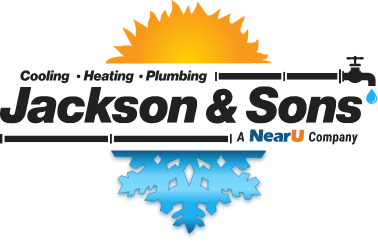One hazard of winter weather that doesn’t get a lot of attention is the risk of ice dams forming on the peaked roofs of residential homes. While this is a rare occurrence in Eastern North Carolina, it has been known to happen. An ice dam can result in serious damage to your home’s roof, attic and interior, along with whatever vulnerable belongings you might be storing in the attic.
What is an Ice Dam?
Ice dams are a direct consequence of uneven heating underneath the roof. A poorly ventilated and insulated attic is likely to have temperature variations between the small bit of space toward the edge of the attic, and the larger space in the higher part of the attic. In turn, the roof above these sections may be heating unevenly, too.
When snow falls on the roof, the warmer area toward the peak may melt that snow. When it drains toward the edge of the roof, the colder section of roof may refreeze it. That will form a ridge of ice (the notorious ice dam). Additional snow-melt will back up behind the ridge of ice, and with nowhere else to go, may leak downward through shingles and roofing. The water leakage can result in heavy damage to building materials, carpets and belongings.
How Do You Avoid Ice Dams?
The trick is to ventilate, insulate ad air seal your attic, both the roof and the floor, so temperatures are more even in the attic, and so heat in the attic doesn’t transfer to the rooftop. In addition, Adequate insulation and proper air sealing on the attic floor will reduce the transfer of heat into the attic from the living spaces below.
This not only will reduce the risk of an ice dam forming on your roof, it will help retain heat in your living spaces. That saves energy, enhance comfort and gives your heating equipment a break.
Contact us at Jackson & Sons Heating & Air Conditioning for more information on protecting your Eastern North Carolina home from hazards such as ice dams this winter, as well as saving energy and enhancing comfort.
Our goal is to help educate our customers in Eastern North Carolina (including Wayne, Johnston, Greene, Lenoir, Pitt and Duplin Counties) about energy and home comfort issues (specific to HVAC systems).
Credit/Copyright Attribution: “qimono/Pixabay”

